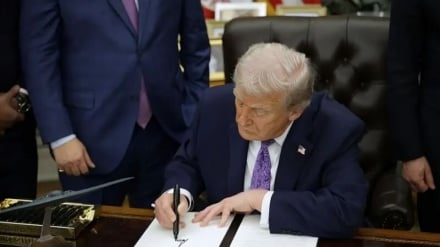Tel Aviv’s roadmap for Syria: War or humiliating surrender?
-

Tel Aviv’s roadmap for Syria: War or humiliating surrender?
Pars Today – Al Jazeera, in a report, warned that Israel’s military movements in southern Syria, backed by the U.S. government, have placed the country on the brink of a major conflict, forcing Damascus to face a difficult choice between war or surrender.
Al Jazeera, in an analytical report, wrote: “The Israeli army’s incursions into Syria, particularly in the south, have severely cornered the new rulers in Damascus, and the continuation of these movements is making the situation extremely critical.”
According to Pars Today, citing IRNA, Syria is at the center of Israel’s geopolitical project to restructure West Asia — a plan based on the fragmentation of regional countries and the creation of small, tribal, and ethnic regimes. This objective is also evident from statements made by Israeli officials.
Due to its social and geographical ties with Iraq and Turkey, as well as its ethnic and tribal similarities with Iran, Syria is viewed by Tel Aviv as an ideal case for implementing this plan. Analysts believe that any change in Syria’s structure could also spread to neighboring countries.
Al Jazeera also highlighted Israel’s projects in Syria, including the buffer zone plan in southern Syria, the humanitarian corridor in As-Suwayda province, and the so-called “David Corridor” project. Some of these plans are already being implemented, while others remain theoretical, but Israel is seeking the right opportunity to put them into action.
On the other hand, the fragility of Syria’s internal situation encourages interference in the country. From Tel Aviv’s perspective, Syria remains a hotspot for numerous potential developments. In the mindset of Israeli leaders, Syria serves as a laboratory for balancing power in the region and provides a suitable platform for implementing new strategic equations. The country’s situation still has the potential to explode due to the divisions among its factions and the political deadlock among local actors.
Security agreement or imposition of a field reality?
Al Jazeera emphasizes that Israel has framed Syria’s situation around two options: war or humiliating surrender. These options include the Golan Heights and vast areas of southern Syria. Relying on its military strength and Damascus’s weakness, Tel Aviv seeks to expand control over the Syrian capital and its surrounding areas.
In this context, Israel refuses to show flexibility in reaching a security agreement with Damascus. The opening of the corridor to Suwayda is also presented as a way to avoid such an agreement. Former Mossad officers and retired Israeli generals emphasize that a security agreement at this stage would not benefit Israel, as it would limit military operations and require withdrawal without tangible gains.
Currently, southern Syria is under Israeli control, with Damascus within its reach. Key water resources, such as those in Quneitra and Daraa, are also under Tel Aviv’s control, and no immediate threat is perceived from Syria. Therefore, Israel sees no necessity to withdraw from its geopolitical gains.
However, the continuation of this situation destabilizes Israeli movements, and any authority in Damascus that cannot resolve this crisis through negotiation or mediation will face difficult choices. The expansion of Israeli control over the outskirts of Damascus has weakened the flexibility and pragmatism of Syrian officials, making the path toward war inevitable.
Trump’s security order and silence in the face of aggression
At the end of its report, Al Jazeera addresses the role of the Trump administration in regional developments, writing: “The U.S. government claims to establish a new security order in West Asia to replace the post-Soviet order. However, this new order is not based on international rules but is designed according to Israel’s security interests.”
On the other hand, Washington supports a security agreement between Tel Aviv and Damascus according to Israel’s terms, not based on the regional political context or international law. Therefore, it will not oppose Tel Aviv’s pressure on Syria’s new regime. Evidence of this is the U.S. not even verbally objecting to Israel’s violations of Syrian sovereignty. This means that Washington separates the process of establishing a West Asian security order from Israel’s security interests in Syria.
Al Jazeera wrote that Trump’s eagerness to halt the war in Gaza stems more from domestic calculations and political costs than a genuine concern for peace. Under such circumstances, the continued presence of Israel’s extremist cabinet is considered the greatest threat to the stability of Syria and the region.


